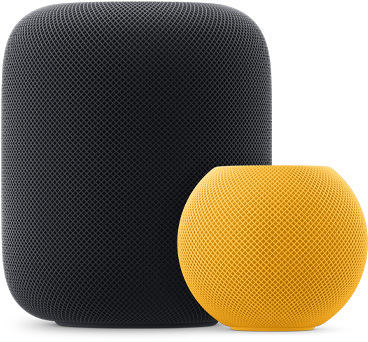Apple is preparing to take another crack at the smart home market in 2025 with two new HomePod models featuring built-in displays and Apple Intelligence features. Simultaneously, the tech giant could possibly rebrand its tvOS to focus more broadly on home automation, according to a report from Bloomberg.
The new HomePod models will come in two versions: a lower-end model designed for basic smart home controls and a high-end variant equipped with advanced features. This move marks Apple’s most significant push into the smart home space since it was discontinued in 2021 to focus on the HomePod mini.
The lower-end HomePod, codenamed J490, will offer essential functionalities such as FaceTime, smart home controls, and integration with Apple’s ecosystem of apps like Calendar and Notes. The higher-end model, codenamed J595, is expected to feature a larger display and a robotic arm that can follow users during video calls, making it ideal for both home and office environments.


Both models will run on Apple’s A18 chip, ensuring robust performance and seamless integration with Apple Intelligence, the company’s artificial intelligence (AI) platform. The devices will also support hand gestures for accessibility.
A recently uncovered patent seems to hint at a sleek, and more modern redesign, compared to previous iterations. The patent details a soundbar-like structure with a central display, reminiscent of the JBL Charge 5 speaker or a chunkier soundbar like the Sonos Ray.
Apple is also rumored to rebrand the name of the operating system of the televisions as homeOS, to make it possible to push all smart home device interaction through a single interface. Mark Gurman of Bloomberg suggests that Apple’s recent decision aligns with its established strategy, where each major hardware category is supported by its operating system, typically a variation of macOS or iOS.
A Competitive Edge with Apple Intelligence
With Amazon’s Echo Show and Google’s Nest Hub already established, consumers looking to purchase HomePod models from Apple will need more than just a smart speaker design to grab their interest. The inclusion of a robotic arm in the high-end model could be a game-changer, providing a level of interactivity not seen in current smart displays.
Apple Intelligence will also be instrumental in marketing the new HomePod models. This platform, which was highlighted during Apple’s recent GlowTime event, promises to enhance user experience through advanced machine learning and natural language processing capabilities. In addition, the GlowTime event showed which devices will use Apple Intelligence features, which are AI tools ranging from writing assistant powered by OpenAI’s ChatGPT to an enhanced version of Siri.
The introduction of these new HomePod models and the rebranding of tvOS to homeOS could be heralding a change in Apple’s smart home strategy. By integrating advanced AI capabilities and focusing on user-friendly interfaces, Apple aims to make smart home technology more accessible and intuitive for consumers. However, for the time being, the tech community eagerly awaits the official announcement and subsequent release of these new devices.





















